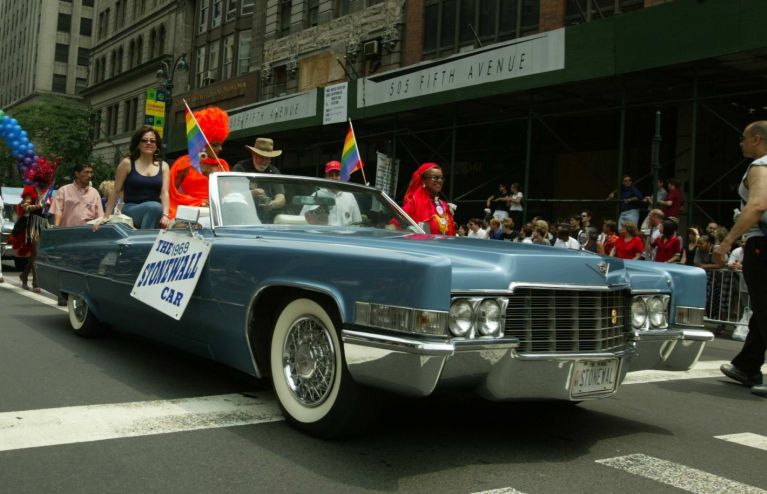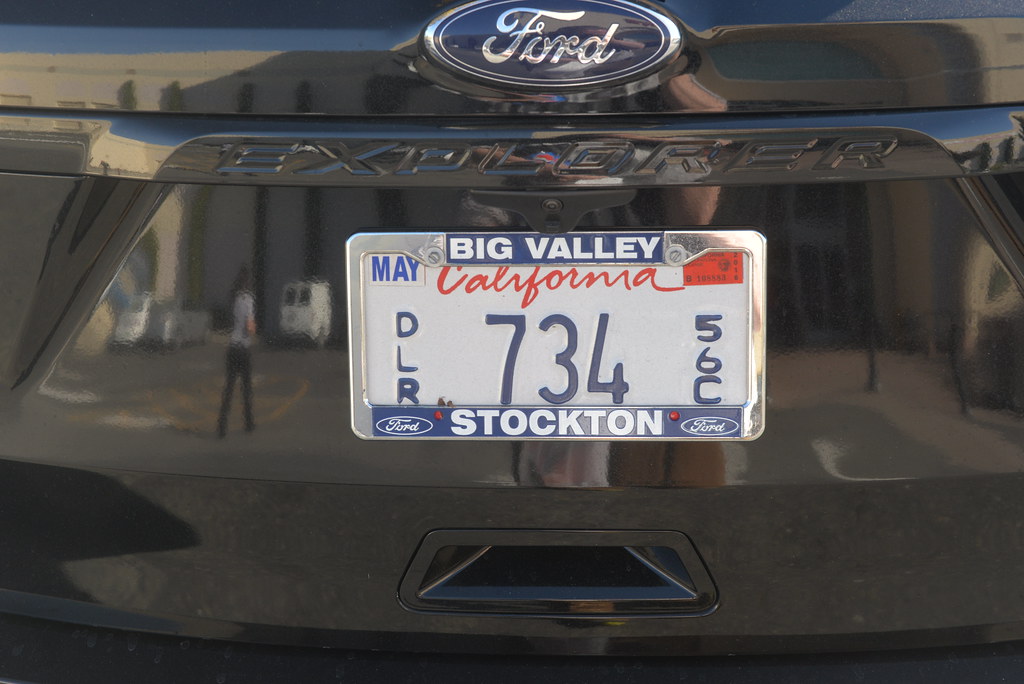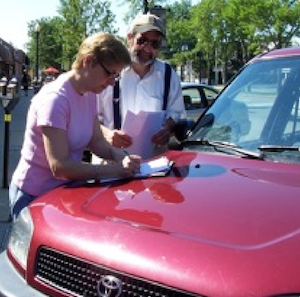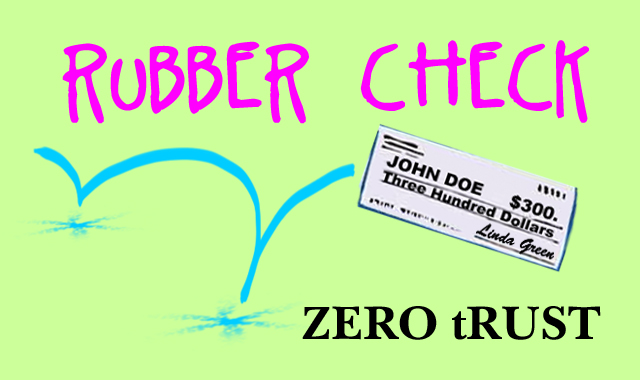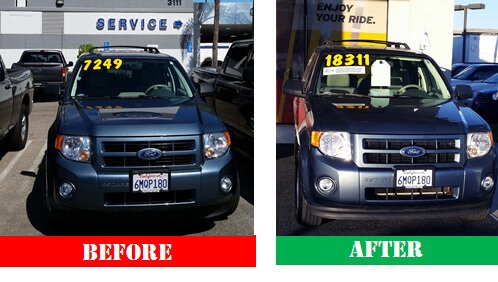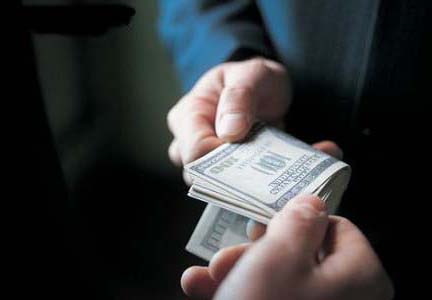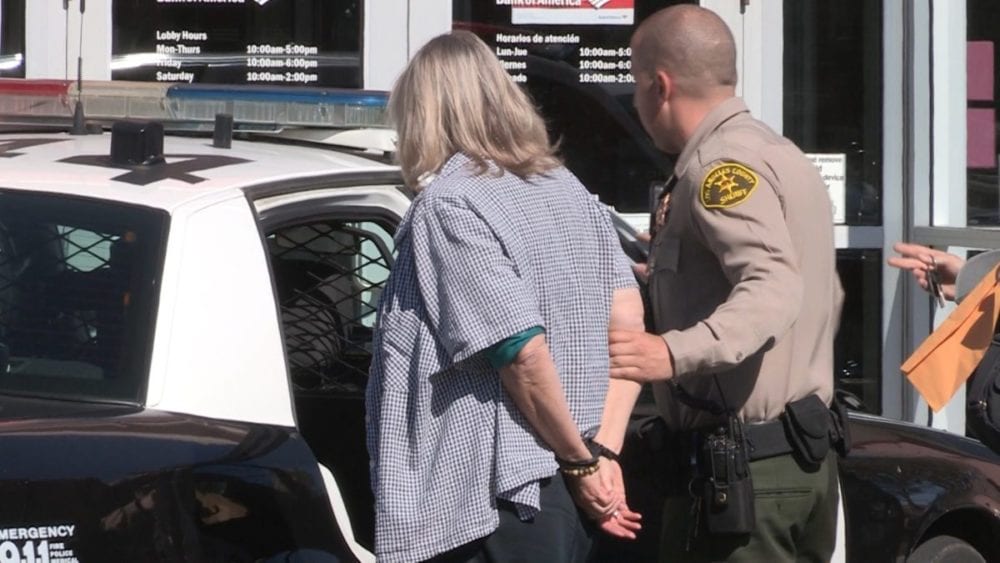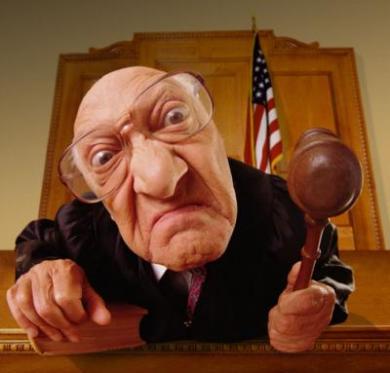Section 9: Warranties, Dealer Plates and Unlawful Acts
Warranties
“Lemon Law”
18 months/18,000 miles
A new vehicle that has the same drivability defect four times or more, or is out of service a total of 30 days or more, during the first 18 months or 18,000 miles, is considered a “Lemon.” Under California’s Lemon Law, the buyer can return the vehicle to the dealer and get a 100% refund minus the fair rental value for the time the buyer was able to use the vehicle.
Lemon Law Decal
Civil Code §1793.23© requires the manufacturer, prior to re-selling the Lemon Law vehicle, to place a decal on the left front door frame, or in an obvious area on a motorcycle, that states the vehicle title has been permanently stamped “Lemon Law Buyback.”
Disclosure Statements
Any person, including a dealer, who sells, leases, or transfers a Lemon Law vehicle with a title that states “Lemon Law Buyback”, shall, prior to the sale, lease or ownership transfer provide the buyer with a disclosure statement signed by the transferee that states:
“THIS VEHICLE WAS REPURCHASED BY ITS MANUFACTURER DUE TO A DEFECT IN THE VEHICLE PURSUANT TO CONSUMER WARRANTY LAWS. THE TITLE TO THIS VEHICLE HAS BEEN PERMANENTLY BRANDED WITH THE NOTATION ‘LEMON LAW BUYBACK’.” [C.C. §1793.23]
The dealer must also notify the buyer in writing of the following:
- The year, make, model and VIN.
- That the title is marked “Lemon Law Buyback.
- The nature of each nonconformity reported by the original vehicle buyer or lessee.
- Repairs, if any, made to the vehicle in an attempt to correct each nonconformity.
- The notification must be on white, 8.5X11 inch letter-size paper in black print no smaller than 10 point. The notification is not submitted as part of the registration application.
Warranty Returns
When selling a vehicle that is branded as, a “warranty return” on the title, the dealer must include the following statement on the dealer’s letterhead and personally signed by the buyer:
“This vehicle has been returned to the dealer or manufacturer due to a defect in the vehicle pursuant to consumer warranty laws.”
Implied Warranty of Merchantability
https://www.youtube.com/watch?v=HkpYA8FzALI
Implied in every contract for the sale of goods is a warranty that the good is fit for the ordinary purpose for which it is intended. [California Commercial Code]. This means that when you sell a vehicle, if you do not indicate on the Buyer’s Guide that the car is being sold “as-is”, or with a “warranty,” then you are providing the buyer with an implied warranty that the car will run and drive just fine for a reasonable time period, given the age, mileage, condition, and price of the vehicle. It is always best to mark on the Buyer’s Guide either “as-is” or “warranty” so there is no confusion as to whether there is any warranty or not.
Implied Warranty of Fitness
Where the seller represents that a vehicle is fit for a particular purpose, or knows a buyer is buying a vehicle for a particular purpose, (ex. towing, hauling particular goods, etc.) such knowledge or representation may create an implied warranty of fitness for that particular purpose. [California Commercial Code]
Express Warranty
An express written or oral agreement by the dealer to warrant, or guarantee, some condition of the vehicle for sale. [California Commercial Code]
Dealer Plates/”Special Plates”
Use of Plates
For our purposes in this section, “Special Plates” and “Dealer Plates” will be used interchangeably and will mean the same thing.
A dealer may operate or move a vehicle upon the highways without registering the vehicle provided the special plates (“dealer plates”) are displayed upon the vehicle. [V.C. §11715(a)]. Special Plates may only be used on vehicles owned or lawfully possessed by a dealer, manufacturer, re-manufacturer, or distributor.
Permitted Uses
The dealer may use the plates for business and personal use. [V.C. §11715(a)] Vehicle Code section §11715(a) does not limit the dealer to only business use of the special plates.
The following individuals are considered “the dealer” for special plate use purposes:
- The sole owner of the dealership
- A general partner of the dealership
- The manager of a limited liability company who is actively engaged in the management and control of the business operations.
- A corporate officer or director of a dealer if they are actively engaged in the management and control of the business operations.
Note: A dealer must notify the DMV immediately of any change in the ownership or corporate structure of the licensee.
Note: A general manager, business manager, or sales manager actively engaged in the management and control of the business operations may use the special plate if there is no other individual who meets the first four categories above.
Test Drives
Any licensed driver may operate a vehicle with a special plate so long as one of the individuals described in the preceding six categories above is also in the vehicle.
Spouse and family members
An unaccompanied licensed driver who regularly resides in the immediate household of the dealer may operate a vehicle with special plates solely to pick up or drop off the dealer.
Employees
A licensed driver who is an employee of a dealer may drive a vehicle with special plates so long as they are acting within the course and scope of their employment.
Salesperson demos

Vehicles rented or leased to vehicle salesmen in the course of their employment for purposes of display or demonstration may be run on dealer plates. The lease or rental agreement must be in the vehicle at all times. [V.C. §11715(d), and section 18.030 of the DMV Dealer Handbook] and section 18.030 of the DMV Handbook of Registration Procedures.
Special Events
Any licensed driver may operate a vehicle with special plates for special event purposes if the operator carries a letter of authorization from the licensee identifying the vehicle, duration, and location of operation, and person(s) authorized to operate the vehicle.
Prospective buyer or lessee – 7 days
Any licensed driver who is a prospective buyer or lessee, may test drive a vehicle with special plates for up to seven days. If a salesperson is not present, then the operator must carry a letter of authorization from the dealer.
Commercial drive test for employees
Employees of a commercial vehicle dealer, who must operate a commercial vehicle in the course of their employment, may take a commercial drive test in a commercial vehicle displaying special plates. [V.C. §201.00(g)]
Trailers
Trailers displaying special plates may be towed by a vehicle with Vehicle Code authority to operate on the highways. [V.C. §201.00(h)]
Towing
Towing or transporting other vehicles is permissible with a dealer plate. [V.C. §11715(a)]. Exception: Dealer plates cannot be used to transport more than one load of other vehicles for the purpose of sale. [V.C. §11715(d)]
Impermissible Uses
Dealer plates cannot be used on a work or service vehicle owned by the dealer [V.C. §11715] “A work or service vehicle” includes tow cars, parts delivery vehicles, pickup vehicles, and vehicles loaned to service customers. Dealer service vehicles must be licensed and registered to the dealership.
Vehicle Delivery
Dealer plates can be used to deliver a vehicle when title does not pass to the purchaser until after delivery.[Handbook of Registration Procedures §18.030]. However, Dealer plates cannot be used after delivery of a vehicle. At that point you should provide your buyer a One Trip Permit to move the vehicle.
Dealer plates can only be used for expressly permitted purposes. If it is not allowed in writing, it is not allowed.
Misuse of Plates
A dealer shall not knowingly or negligently permit any illegal use of special plates. Such illegal use may result in suspension or revocation of the dealer’s license. [V.C. §§11705 and 11713]
Illegal Uses:
- Knowingly permitting the use of the plate by one not entitled to it. [V.C. §4461]
- Allowing a renter or lessee of a vehicle to use the plates unless the renter or lessee is a licensed salesperson. [V.C. §11715(d)]
- Allowing a family member to use plate unless the dealer is in the vehicle or the family member lives at the dealer’s residence and is on their way to pick up or drop off the dealer.
- Allowing an employee to use plate for personal use.
- No person shall be in possession of a special plate not lawfully issued and obtained under the Vehicle Code. [V.C. §4462(c)]
Duration/Expiration/Penalty
Special plates are valid for one year. Failure to renew prior to expiration results in a penalty equal to the amount of the original application fee for each occupational license held. Failure to renew within 30 days of expiration results in loss of plate. [V.C. §11717]
Display of Plates
According to the Vehicle Code, the special plates must be displayed in addition to any plates or permits already assigned and attached to the vehicle as prescribed in V.C. §§5200 – 5203. [V.C. §11715(a)].
DMV additionally requires you to place the dealer plate on the rear of the vehicle over any other pre-existing plates. So to comply with all rules, place your dealer plate on the back of the vehicle, over the pre-existing plates, if any. The original registration card must be kept with the vehicle bearing the plate. The best practice, generally, is to keep a copy of the registration at your office, and tape the original registration in a waterproof pouch on the backside of your plate so you are never without your registration.
Lost plates or stickers
Substitute/replacement dealer plates or stickers may be obtained by completing an application for Additional Special Plates using Vehicle Dealer Form (OL22). The DMV will issue a 120 day temporary permit upon receipt of application and fees to use until the replacement arrives.
Note: Renewal fees may be paid up to 90 days before expiration of the dealer plate registration.
Tow dollies
Tow dollies, or auxiliary dollies, are not required to be registered. Existing plates should be removed. You do not need to put a special plate on a tow dolly.
Unlawful Dealer Activities
The DMV may suspend or revoke a dealer’s license or special plates if the dealer violates regulations or statutes. They can also require the dealer to pay penalties as well.
Abandonment
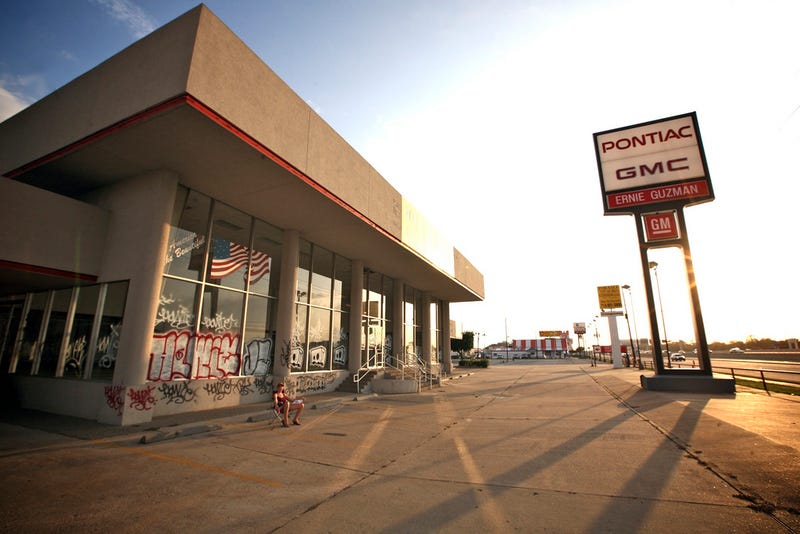
You must notify DMV immediately of any address change, or the addition of a branch location. Failure to do so can result in automatic loss of your dealer license.
Failure to Maintain Adequate Bond
You must maintain a bond in the amount of $50,000 to sell vehicles at retail and wholesale, unless you sell wholesale only and less than 25 vehicles per year. In that instance you must maintain a $10,000 bond. Motorcycle-only dealers may also use the lower $10,000 bond. If the bond amount drops below its required level, or if it expires – even though no fault of your own (example: the bonding company goes bankrupt) you will lose your dealers license, automatically!
Failure to Notify DMV of change of ownership
A dealer must notify DMV immediately of any change in ownership, corporate structure change, or change in the partnership membership. [V.C. §11704(c)]
Suspension or revocation of Seller’s Permit
Suspension or revocation of the seller’s permit by the Dept. of Tax and Fee Administration. [V.C. §11721]
Misuse of Special Plates
See “Use of Special Plates”, above.
Lending Dealer Supplies
A dealer shall not permit the use of the dealer’s license, supplies, or books by any other person for either of the following purposes:
- Permitting another person to engage in the purchase or sale of vehicles required to be registered under this code.
- Permitting operation of a branch location by any other person, whether or not the licensee has any financial or equitable interest or investment in the vehicles purchased or sold by, or the business of, or branch location used by , the other person. [V.C. §11713(m)]
Selling at Unlicensed Locations
A dealer shall not sell any vehicle at retail at a location that is not its established place of business and posted with signs pursuant to V.C. §11709. [V.C. §11714(b)]. To review main location, branch location, office, signage and display requirements, refer the earlier section on “Main and Branch Location Requirements.”
Failure to Pay ASF
An Administrative Service Fee (ASF) is a penalty assessed by the DMV for a dealer’s failure to comply with specified Vehicle Code sections (Example: failure to properly or timely file reports of sale documentation with the DMV). [V.C. §§4456 and 4456.1]. Note that the DMV may suspend or revoke a dealer’s license for failure to pay an administrative service fee. [V.C. §11705(a)(8)]
Taking Deposits Without Vehicle Present
A dealer may not accept a purchase deposit unless the vehicle is present at the premises of the dealer or available to the dealer directly from the manufacturer or distributor of the vehicle at the time the dealer accepts the deposit. Purchase deposits accepted by an auto broker when brokering a retail sale shall be governed by V.C. Sections 11736 and 11737.
Dishonored Checks
The DMV may suspend or revoke a dealer’s license for submitting a check, draft, or money order which is dishonored or refused payment. [V.C. §11705(a)(13)]
Failure to Transfer Title
The DMV may suspend or revoke a dealer’s license for failing to transfer a properly endorsed certificate of ownership to a transferee entitled thereto. [V.C. §11705(a)(4)]
Employing Unlicensed Salespersons
“Salesperson” includes those persons who attempt, for money or other value, to sell, buy, negotiate, an exchange of interest in a vehicle. “Salesperson” includes those who exercise managerial control over the dealership business, or supervises salespersons. “Salesperson” includes general managers, assistant general managers, sales managers, and those who negotiate the finance and security agreements. [V.C. §675]
- Unlawful Acts
- Acting as a salesperson without a license or temporary permit. [V.C. §11800]
- A dealer employing an unlicensed salesperson. [V.C. §11705(h)]
- Operating without the salesperson’s license displayed on the premises. [V.C. §11705(h)]
- Failure to notify DMV by mail within 10 days of hiring or firing a salesperson. [V.C. §11705(h)]
“Bait and Switch”
Bait and Switch” is the practice of advertising one vehicle at a low price (the “bait”), then making the bait unavailable when the buyer arrives and switching the buyer to another vehicle. It is unlawful to use “bait and switch” techniques. [V.C. §11713(o)]
“Bird Dog Fees”
“Bird dogs” are people that the dealer pays to refer customers to the dealer. Simply put, referral fees are “bird dog fees” and they are not permitted. The dealer cannot pay people who are not licensed as salespersons or dealers to refer customers to the dealer, or to otherwise negotiate any part of a sales transaction.
- Unlawful Acts:
- Employing or compensating any unlicensed salespersons (or “bird dogs”). [V.C. §11713(h)]
- Inducing a person to enter into a contract by offering a rebate, commission, or other compensation contingent upon the buyer referring another potential buyer to the dealer. [C.C. §2982.1]
- Incentives:
- Be careful. Do not offer your current buyer any money, or other financial incentive, to refer friends, relatives, or others. Doing so makes them a “bird dog.” It is okay to ask for referrals, just don’t offer money for them.
Fraud
A dealer may not file any application for registration with the DMV that contains false or fictitious names not registered with the proper authorities, nor may the dealer knowingly make any false statement, or knowingly conceal any material fact. Also, a dealer may not knowingly buy, sell, or otherwise dispose of a stolen vehicle. [V.C. §11705]
Failure to Separate Business Operations
A dealer must provide and maintain a clear physical division between the dealership business and any other type of business conducted at the established place of business for the dealership. A DMV inspector must have direct access to the dealership office and display area without interference from any other business or entity.
DMV Enforcement Actions
- Administrative
The DMV and other regulatory agencies of the State and Federal government can limit, suspend, or revoke a dealer’s license, and/or impose a penalty for a dealer’s failure to abide by the laws and regulations governing dealers.
- Civil
Any person or entity suffering a loss or injury as a result of a dealer’s wrongful act or inaction can recover money for those damages in Federal or State court.
- Criminal
The State or Federal government can prosecute a dealer for violations of the criminal law, resulting in fines and/or imprisonment. This could happen, for example, where a dealer rolls back odometers, or sells vehicles in violation of the safety requirements.

